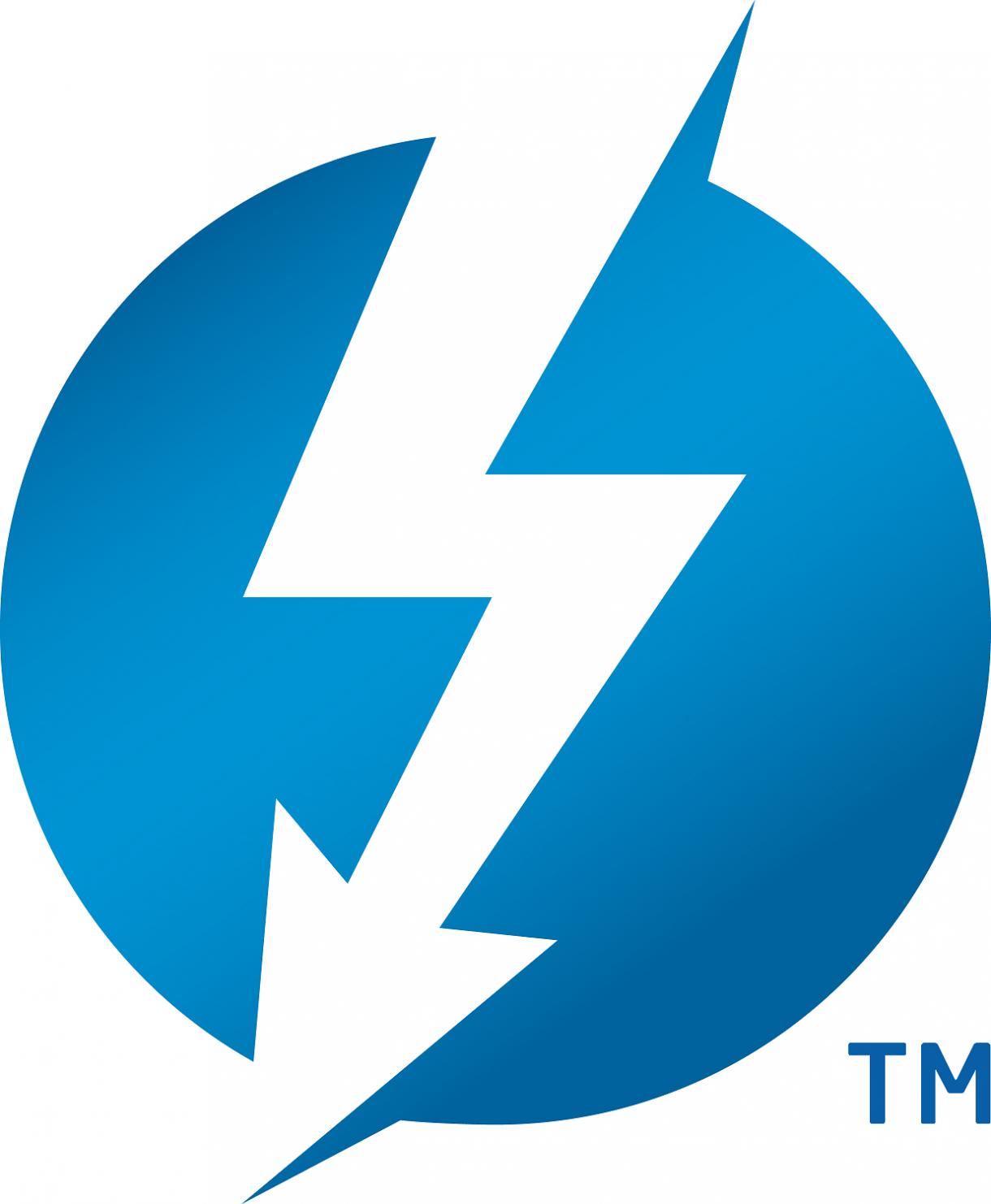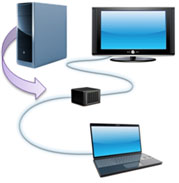And probably more protocols, like: Firewire, eSATA, HDMI …
Some of you probably know it as Light Peak, as it was the code name for the just announced (last week) Thunderbolt Intel proprietary interface, supporting copper (or optical) interconnect when Light Peak was optical only. This will make Thunderbolt easier to implement, and more dangerous for USB 3.0 and the other Interface in competition.

Thunderbolt is a High Speed Serial, Differential, Bi-directional offering 10 Gbps per port and per direction. Each Thunderbolt port on a computer is capable of providing the full bandwidth of the link in both directions with no sharing of bandwidth between ports or between upstream and downstream direction. See: http://www.intel.com/technology/io/thunderbolt/index.htm
Intel will provide the technology (protocol)and the silicon, the Thunderbolt controller. So far, Intel was providing the protocol controller on the Host (PC) side, through the Chipset, to support the PCIe, USB, eSATA etc… and other chip makers the controller on the peripheral side, sourcing the related protocol IP (PHY or Controller) to IP vendors, when necessary. Now, Intel will be present on both side of the link.

Thunderbolt Controller supports natively two protocols: PCIe and DisplayPort. Intel claims that “Users can always connect to their other non-Thunderbolt products at the end of a daisy chain by using Thunderbolt technology adapters (e.g., to connect to native PCI Express devices like eSata, Firewire). These adapters can be easily built using a Thunderbolt controller with off-the-shelf PCI Express-to-“other technology” controllers.” What does this means? That the BOM for peripheral will increase, as you add Intel device to it, but you still need a PCI Express to other technology controller (when there was a unique controller before)!
What does this means for the IP vendors? On the PC side, on mature technology (like USB 2.0), they were not present as the PC Chipset was supporting the protocol (please note that this was not true for USB 3.0, not supported from now by Intel). So, no big change. But, on the peripheral side, the number of protocol previously supported will reduce to PCI Express (in term of PHY IP sales) and to a PCIe to “other protocol” bridge on the controller side. In other word, it will probably kill the USB 2.0, yet to come USB 3.0 and eSATA IP sales.
The other protocol natively supported by Thunderbolt is DisplayPort. Here the target competitor seems to be Silicon Image with HDMI. This makes sense on the PC side, supporting only one connector will be cheaper. Which is unclear is the willingness of Intel to be present in the HDTV type of product. If this is the case, we can expect these products to support both HDMI and DisplayPort, at least until the market decide to reject one of these. If Thunderbolt finally win in the Consumer Electronics (which is far to be certain), this will increase Intel sales for chips and kill any IP sales for HDMI, USB 3.0… and DisplayPort in the Consumer Electronic segment.

Another big unknown is Thunderbolt penetration into the Mobile Internet Devices segments (Smartphones, Media Tablets). So far, in the mobile handset segment, you find HDMI and USB 3.0 protocols supported in the high end products. Thunderbolt could kick out these two, at two minimum conditions: the controller price and power consumption. If you look at the Application processor for Smartphone market, you see that the chip makers tend to integrate IP (internal or sourced to IP vendors) and leaving Intel catch a part of the BOM is probably not their first priority!
From an IP market point of view, Thunderbolt does not look great, except maybe for the PCI Express PHY IP vendor, as well as the PCI Express to “other protocol” bridge controller IP developers, at the condition that this market is not cannibalized by off-the-shelf (ASSP) solutions. From an OEM point of view, this means that the PC peripheral manufacturer will have to pay a tribute to Intel (that they did not do before).as well as the Consumer Electronic and Cell phone manufacturers. Will Thunderbolt be Intel Trojan horse into the other than PC segments?
Eric Esteve
www.ip-nest.com





Facing the Quantum Nature of EUV Lithography